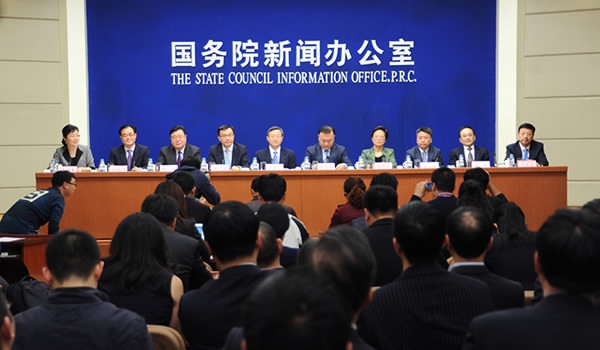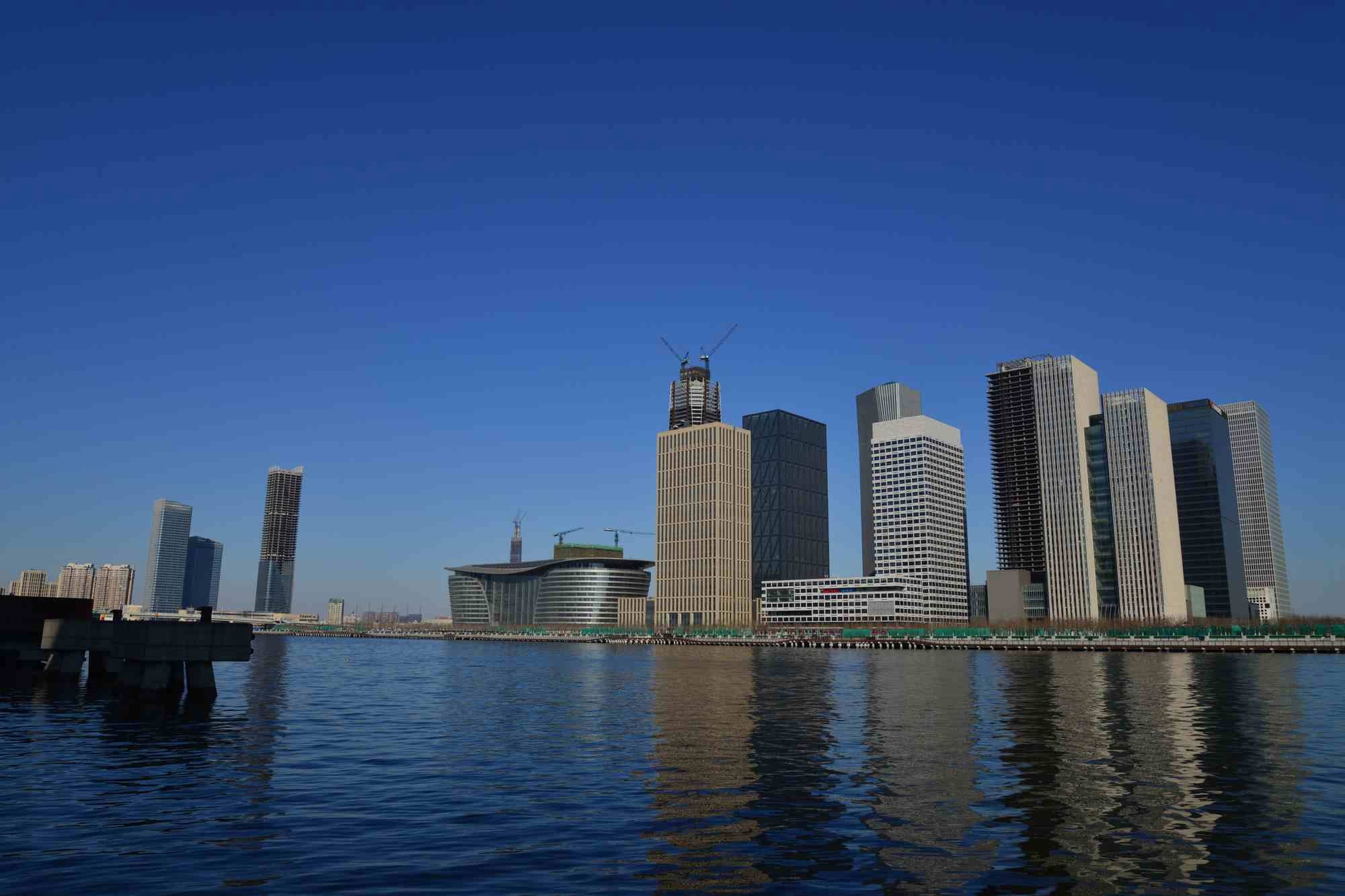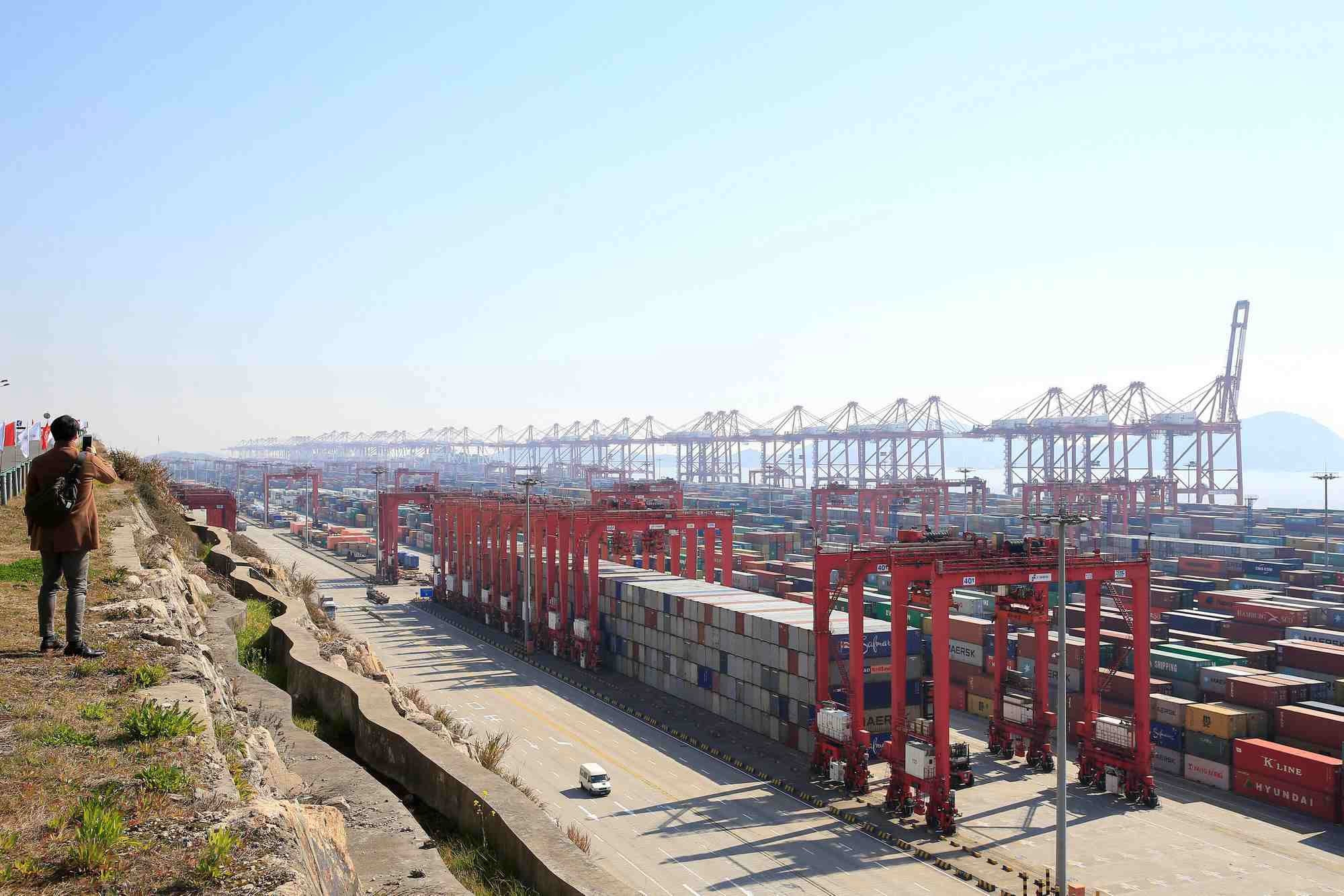China’s free trade zone club is set to welcome seven new members, as the country’s State Council issues general plans for new FTZs in seven provincial-level areas.
The provinces of Liaoning, Zhejiang, Henan, Hubei, Sichuan and Shaanxi as well as Chongqing Municipality have been approved to establish FTZs, which will open on April 1. According to the plans, the new FTZs are part of a “strategic measure” aiming to further deepen China’s opening-up and reforms.

China's State Council hold a press conference on the launch of seven new free trade zones. /SCIO Handout Photo
The move will bring the total number of China’s free trade zones to 11, adding up to the current four in Shanghai, Guangdong, Tianjin and Fujian.
Wang Shouwen, Deputy Minister of Commerce, said during a press conference on Friday that the new FTZs will have their own characteristics in accordance with their local development conditions, while at the same time replicating the success of the previous trial in Shanghai.
A majority of the upcoming FTZs are located in the central, western and northeastern areas of China. It is hoped that the zones will play a pioneering role in promoting the FTZ model across the whole country.

Buildings in Tianjin Pilot Free Trade Zone. /CFP Photo
Wang Shouwen said the locations for the new FTZs were also selected in order to meet some of China’s new strategies, such as the Belt and Road Initiative, and the Yangtze River economic belt development plan.
For instance, Chongqing in southwest China will aim at building a traffic hub linking China to the countries along the “Silk Road” economic belt and meanwhile to boost trade cooperation with those countries. It is also expected to meet the needs of enhancing ties and cooperation with the ASEAN countries. The FTZ in Liaoning in northeast China will mainly focus on deepening the reforms of state-owned enterprises, according to Wang.

Containers in Shanghai Pilot Free Trade Zone (FTZ). /Reuters Photo
The State Council has also issued a plan to deepen reforms in the Shanghai Pilot Free Trade Zone (FTZ), which was established in 2013. The plan highlighted institutional renovation, urging to set up a system which is able to connect to the international prevailing rules of investment and commerce.
The Shanghai FTZ was China's first, and was established to test a broad range of economic reforms, including increased openness to foreign investment and fewer restrictions on capital flows. In late 2014, Tianjin, Fujian and Guangdong were approved as the second group of free trade zones.









